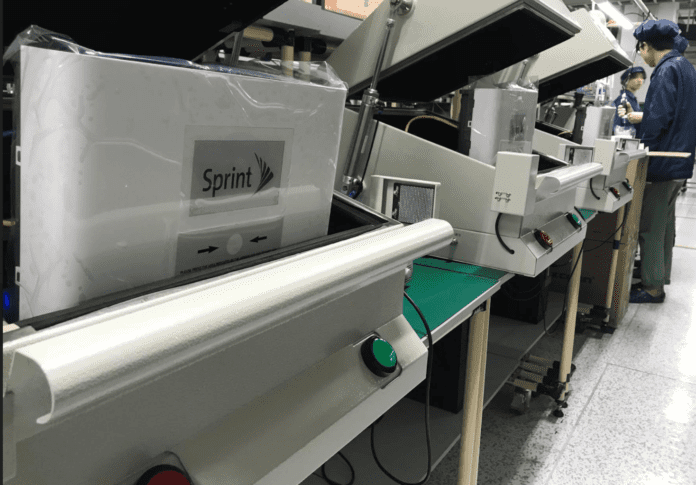The small cells developer said it is confident that the firm is in a good position to meet the increasing demand for this product
HONG KONG- Airspan Networks, a provider of LTE small cells and backhaul technologies, said the company is taking actions to scale production of its “Magic Box” small cell solution in order to meet the increasing demand for the product, the company’s Vice President of Strategy and Marketing Damiano Coletti told RCR Wireless News.
“We are meeting current demand producing 1,000 a day, and ramping manufacturing capacity to 3,000 in March next year,” Coletti said on the sidelines of the Qualcomm 4G/5G Summit, which took place in Hong Kong this week. Sprint’s CEO Marcelo Claure recently told RCR Wireless News the small cell solution was “truly magical,” but highlighted that demand was exceeding supply.
The self-configuring, plug-and-play small cell solution uses an LTE UE relay, and is being deployed in consumer and enterprise use cases, Sprint said.
The Magic Box is manufactured by Foxconn in China. Sprint is offering the MagicBox as part of the operator’s densification and optimization toolbox for bringing LTE Plus service to homes and businesses across the U.S. Coletti also highlighted that network densification will be a key enabler of future 5G networks and the deployment of small cells are crucial in network densification projects.
Airspan’s portfolio includes LTE-A and 4G base stations as well as complementary 5G small cell backhaul solutions based on LTE Relay, mmWave and proprietary technologies. Airspan also addresses non mobile carrier and private network deployment including the needs of fixed internet service providers, and a number of vertical market segments including smart grids, public safety, transportation and oil & gas.
“We have seen increased demand on account of the fact that our solutions with integrated relay backhaul allow operators to solve some key problems that lie at the heart of small cell deployments,” Coletti said. “The plug and play nature at customer premises allows operators to rapidly deploy targeted network enhancements while eliminating traditional site opex. We are able to increase the efficiency of operator macro networks by decongesting over-taxed frequencies and maximising the utilisation of higher band spectrum, all of this while solving the indoor coverage and capacity problem at the same time” Coletti said.
As announced earlier this year, Airspan won a large contract with Indian telco Reliance Jio Infocomm for the provision of indoor and outdoor small cell solutions. The Indian operator is in process to deploy a network of small cells and small cell backhaul products to provide coverage and capacity for delivering high speed broadband data, voice, and digital services across India. Coletti said that tens of thousands small cells have been deployed in Jio’s network so far.
Coletti said that Airspan is receiving new orders from several Tier one operators from markets in Asia as well as the U.S and Europe. Regarding the firm’s outlook in the internet of things (IoT) market, Coletti said that Airspan has been active in the IoT space for a long time. “We have been pioneers in smart grid projects and we have been also providing the backhaul for a telemetry solution for the McLaren F1 team so there is a lot of IoT culture already in the company. We have been engaged in several projects in the energy, transportation and oil & gas sectors. We embrace the IoT because we understand the IoT,” he said. Headquartered in Boca Raton, Florida, Airspan Networks has R&D facilities in the U.K, Israel and India.
The company is controlled by Oak Investment Partners.

